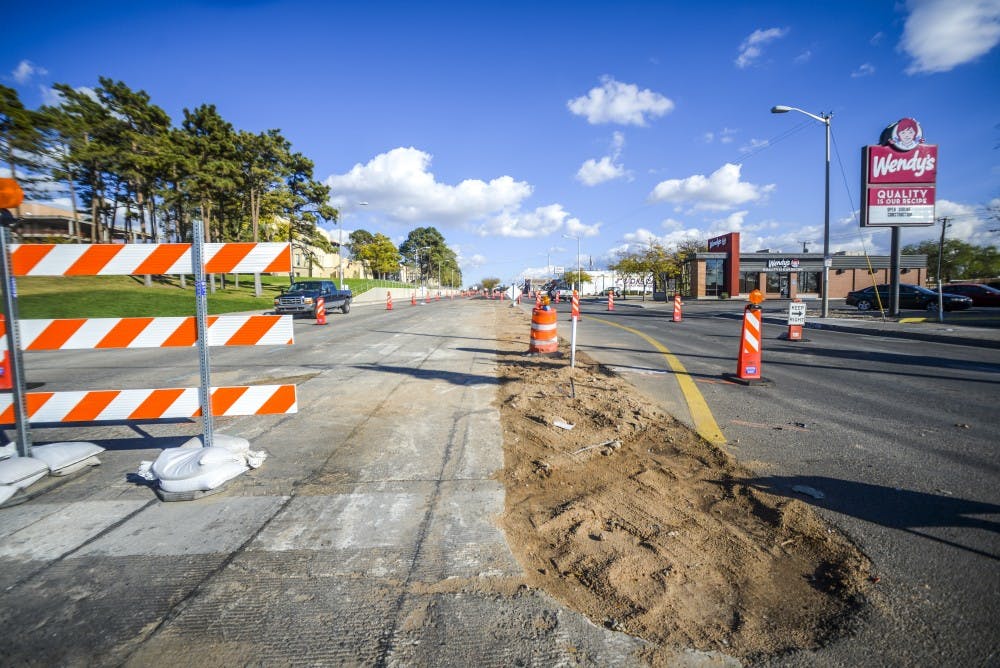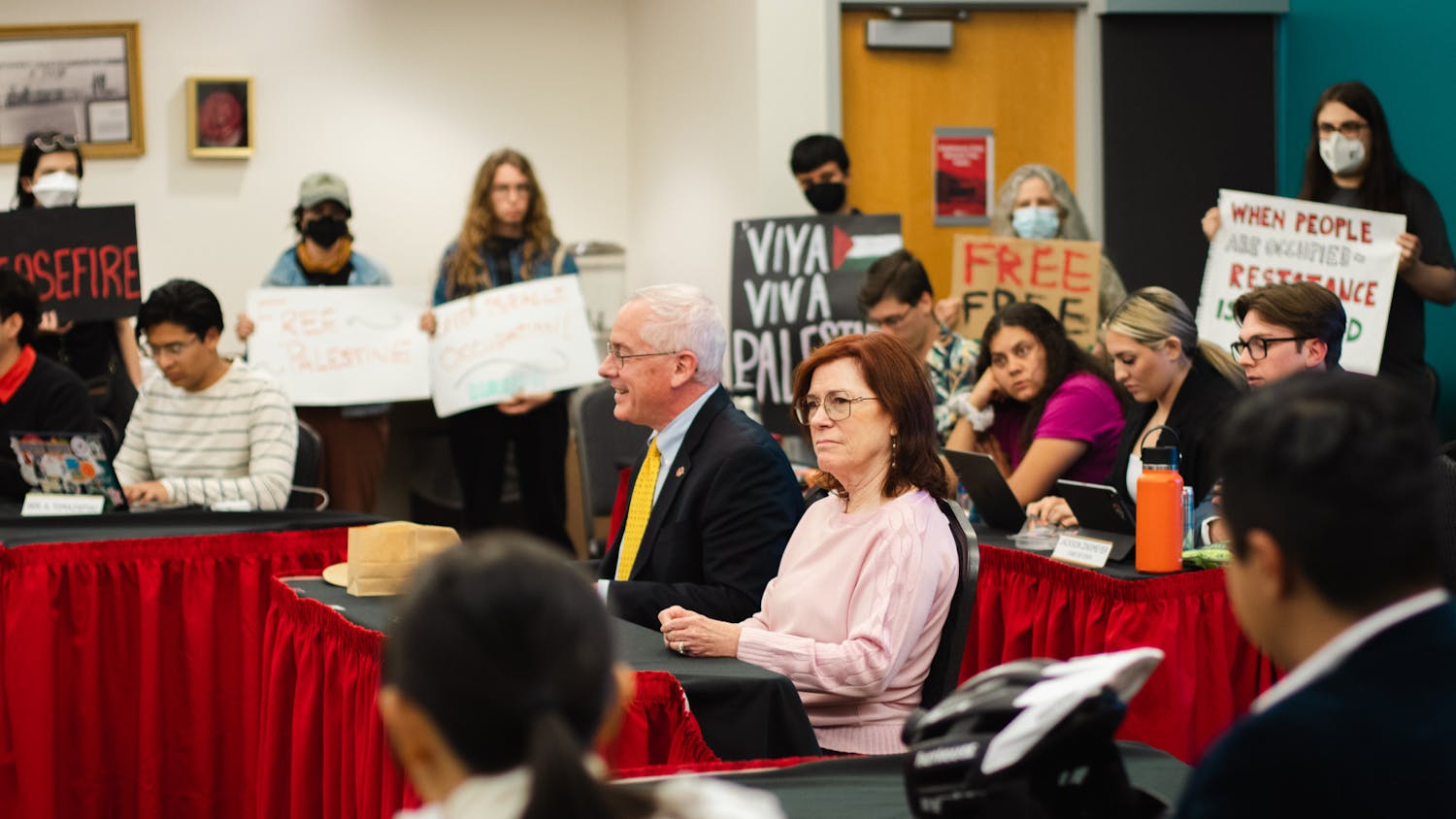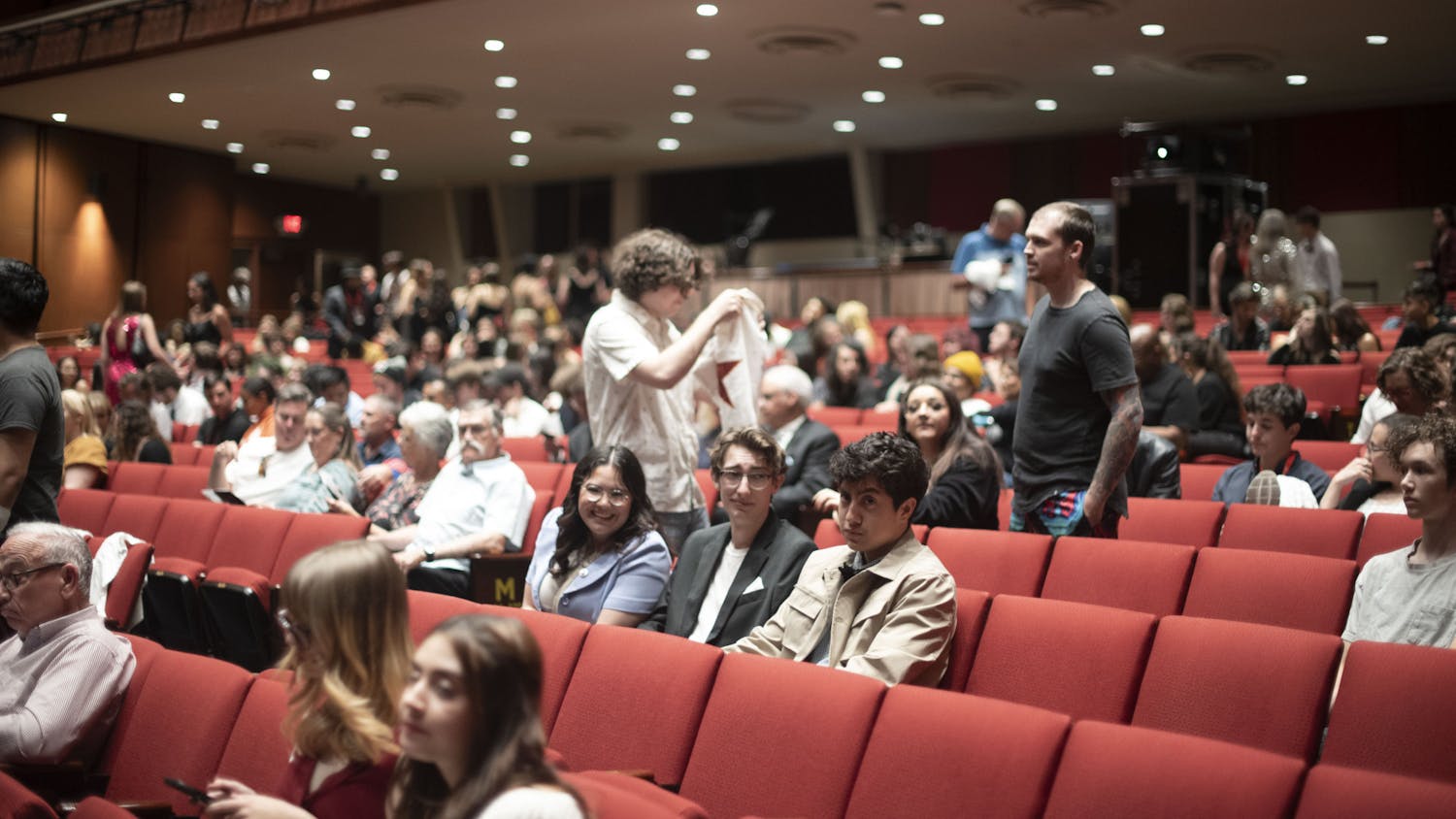For voters living within Albuquerque city limits, this year’s ballot features an advisory question on whether or not the continued construction of Albuquerque Rapid Transit should be determined by the voting public.
While some consider the non-binding advisory question to be nothing more than a confusing political ploy, others view it as a last-ditch opportunity for concerned citizens of Albuquerque to make their voices heard.
The ballot measure has been likened to a public opinion poll.
To be clear, the advisory question asks whether voters are “for” or “against” holding a formal, city-wide election to determine the fate of ART, of which construction is already underway.
Regardless of the result of this measure, city officials will be under no real obligation to stop ART.
The $126 million, nine-mile-long transit project was all but given the green light by Albuquerque City Council in March.
Then, in August, the City Council Government and Operations Committee failed a proposed bill that would have halted construction on the project until a public vote could be taken in the upcoming election.
Last month, the Bernalillo County Board of Commissioners voted 3-2, along partisan lines, to have the question placed on the ballot.
The Mayor’s Office has stated that the actions of the board will not change how the city moves forward with ART.
Commissioner Debbie O’Malley, D-NM, said public outcry — particularly among worried small-business owners along the Central Avenue corridor — prompted her to bring the issue before the board.
“They had been trying to communicate with (Mayor Berry) about their concerns, and felt that they weren’t getting anywhere,” she said. “They even filed a lawsuit to stop it.”
In recent months, the city has overcome legal opposition to ART in court.
Get content from The Daily Lobo delivered to your inbox
O’Malley said the project lacks transparency and the public is being misled about how much it will cost the city.
Federal funding expected by the city is “more of a wish list,” she said, contending that the city has failed to secure requested federal funds and failed to accurately consider recurring maintenance costs.
“All capital projects, typically, with the exception of a few, have gone before the voters for approval, even small ones,” O’Malley said. “That didn’t happen with this project.”
The most the public can expect from the advisory question is confirmation that ART isn’t as popular as City Council’s 7-2 vote might indicate, she said.
“At least (voters) will have said, ‘Look, we weighed in on it. We said we should have voted on it, and the public officials, or those who have control over this project — at least they will know,” she said.
Unlike a true vote, “opinion polls” involve a sample of possible voters, making it unjustifiable to O’Malley that some have adopted the terminology for the advisory question.
“These are voters that are going to the polls, and they’re going to make their wishes known,” she said.
A statement from Berry’s administration reads that they understand that “people will vote on this questions according to their current opinion. We also understand that construction disruptions and controversy will affect the outcome of the vote.”
Berry commissioned “scientific polling” in 2014 and 2015 which found that 56 to 59 percent of respondents said ART should be a priority, and 12 percent to 15 percent said it should not be a priority.
City transit officials have been conducting public outreach on the project since as early as 2012.
Josh Johnson, an adjunct lecturer in the Community and Regional Planning program at UNM, said the advisory question might serve to gauge whether or not the public wants to vote on projects at all, ART aside.
“They’re asking people if they want to be involved in approving these public works projects, period, in the future,” he said.
Some people might be under the false impression that they are voting for or against ART on the current ballot, Johnson said. The advisory question concerning ART is unlike anything he said he has seen in his career.
“Voters need to ask themselves whether or not they want a greater say on these projects that get approved, keeping in mind that, typically, (city officials) approve projects at their discretion, with taxpayer money to a certain point,” he said.
Johnson said voters should read all ballot questions carefully, adding that he voted against the measure personally.
“We elect council members based on what we want to see in the city,” he said. “I don’t know that we should necessarily be voting on every single public works project that comes across the gamut.”
In a press conference held last week by the Coalition of Concerned Citizens to Make ART Smart, local architect Tony Anella stood alongside Central corridor business owners to urge voters to vote in favor of the advisory question.
The ballot measure is the latest effort to determine whether ART is “something the city wants, or something City Hall wants,” Anella said.
“The funding from the Federal Transit Administration has not been committed. That is not something the city wants you to know, but it’s a fact,” he said.
The cost of any anticipated funding that does not come from the FTA will be billed to residents of Albuquerque, he said. It would be a case of “taxation without representation.”
“Remind (city officials) who they’re working for,” Anella said.
Johnny Vizcaino is a news reporter for the Daily Lobo. He can be reached at news@dailylobo.com or on Twitter @thedailyjohnnyv.






